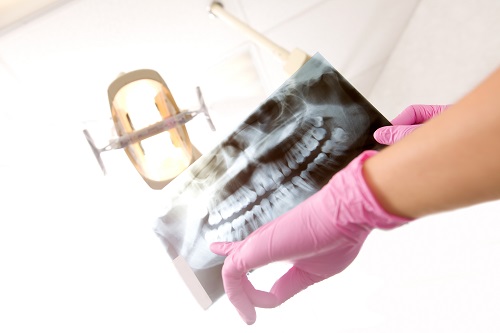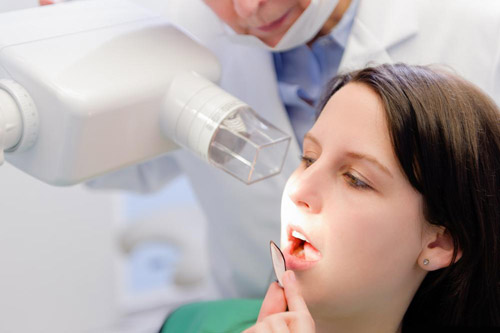Our office in Joondalup provides a full menu of dental services. One of those services is dental x-rays. Dental x-rays are an important part of any dental examination. Here’s why.
X-Rays: an Overview
X-rays are a crucial part of any dental examination because they show your dentist what is happening in parts of your teeth that he or she cannot see. There are a lot of unseen factors that go into determining your oral health. Your teeth and your gums may look great on the outside, but have cavities that aren’t bothering you yet and are invisible from the outside.
X-rays aid your dentist find cavities and other problems before they become dental emergencies.
In the beginning, tooth decay really doesn’t have many symptoms. A set of dental x-rays can show your dentist if there are any undetected cavities. They can also detect infections around or in the roots of your teeth, as well as any bone loss in your teeth.
We cannot state strongly enough how important it is for your dentist to be able to detect problems before they cause irreparable harm to your teeth or gums. X-rays are quick and easy, but can save you a lot of time, money and pain down the road.
To learn more, call our Joondalup dentists today on (08) 9404 9520
Adults and children can have x-rays. They can be taken on the outside of your mouth or the inside. The type of condition for which you are being assessed will determine what kind of x-rays the dentist provides for you.
What Dental X-Rays Can Detect
Areas of decay, particularly small areas between the teeth, that are not visible to the naked eye.
Problems with current crowns, root canals, bridges or fillings.
Gum disease and its severity.
Structural information that can help the dentist plan dental procedures such as extractions, root canals, dentures, braces or tooth implants.
Infections such as abscesses.
Problems concerning the development of teeth, such as timing of tooth eruption, uneven spacing of teeth, missing teeth, extra teeth, malpositioned teeth, impacted teeth, displaced teeth or malformed teeth.
Developmental issues, including tumors or cysts.
Trauma such as fractures to teeth, fractures to bone and foreign objects.
Determine the age of a child who has no documentation.
Proximity of sinuses or nerves to teeth.
Development of the wisdom teeth and determination of whether you should keep them or remove them.
How Often Do You Need Dental X-Rays?
Our dentists create an individual oral health plan for every patient because everyone is different. There is no “one size fits all” answer here. We need to check your mouth, go over your history and assess your current oral health based on your risk of disease, age and any symptoms or signs of oral disease.
Transferring X-Rays for New Patients
If you have had recent x-rays, we will be more than happy to have your former dentist forward them to us. You can request your dentist to forward them or we can make the call for you.
But What About the Radiation?
Because x-rays involve radiation, we understand it if you have concerns about their safety. However, the radiation in one set of x-rays is exceedingly low. If you take a short airplane flight between one and two hours, you will be exposed to the same amount of radiation as if you had a full set of dental x-rays.
However, for safety’s sake and for your peace of mind, the dentist will not recommend x-rays unless they are necessary and safe for you.
If you are pregnant, you must inform the dentist. We can still provide x-rays, but we will keep them to a minimum and take extra care.
If X-Rays are So Safe, Why do Dentists Leave the Room?
Your dentist is taking a large number of x-rays on a daily basis. It is important for them to leave the room so they keep their exposure at levels that have been determined to be medically safe.
Call Candlewood Dental Centre Today
To learn more, call our dentists in Joondalup today on (08) 9404 9520
Any surgical or invasive procedure carries risks. Before proceeding, we encourage you to discuss these matters with an appropriately qualified health practitioner.



